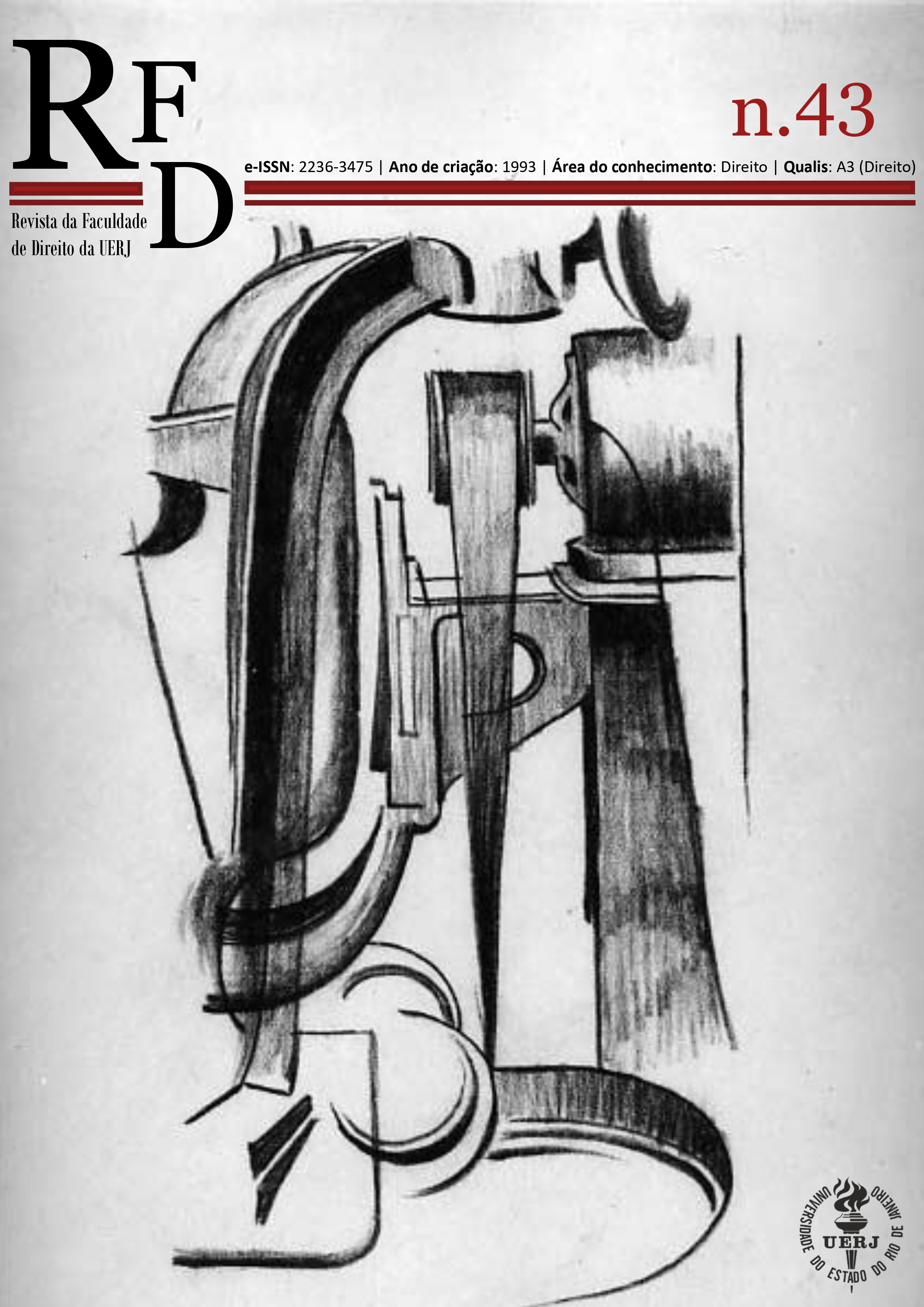INTELIGÊNCIA ARTIFICIAL E A AUTOMATIZAÇÃO DA DECISÃO JURÍDICA
ENTRE EFICIÊNCIA E EFETIVIDADE PROCESSO-DECISÓRIA
DOI:
https://doi.org/10.12957/rfd.2024.72632Palavras-chave:
Inteligência Artificial, Direito Processual, Decisão Jurídica, Processualismo neoliberal, Processualismo democrático-constitucionalResumo
A era da digitalização conduziu inúmeros aspectos da vida em sociedade a tecnologias revolucionárias protagonizadas, sobretudo, por mecanismos de Inteligência Artificial. Nessa lógica, a jurisdição também assume a posição inevitável de adequar-se aos anseios sociais, a partir da revisão da tutela jurisdicional, agora sob esta nova perspectiva tecnológica de aceleração da vida. À vista disso, o presente trabalho tem como escopo o exame dos fundamentos e particularidades acerca do funcionamento de mecanismos de Inteligência Artificial, especialmente aqueles que interessam a aplicação ao campo jurídico processual e seus eventuais impactos, positivos e negativos, na jurisdição. Desse modo, o estudo buscou resolver o seguinte problema de pesquisa: a tomada de decisões automatizadas no processo jurisdicional pode representar a consolidação de uma visão excessivamente lógica e racional da jurisdição, ensejando ofensa à perspectiva democrática-constitucional do processo? Pode, ainda, denotar o comprometimento da efetividade da tutela jurisdicional? Empreendeu-se, para tanto, o método de abordagem dialético, visando uma interpretação dinâmica das condições determinantes e dos resultados inerentes ao fenômeno da inserção da IA no contexto jurídico, visto que, de certo modo, apresentam características paradoxais. No que tange ao método de procedimento, adotou-se o método histórico-comparativo para adentrar às bases paradigmáticas e os acontecimentos históricos-políticos que influenciaram a dilapidação do processo jurisdicional brasileiro, para, posteriormente, correlaciona-las aos vieses que amparam as justificativas do implemento de tecnologias inteligentes na jurisdição hoje. Por fim, pretendeu-se um estudo das maneiras de alinhar o uso da IA aos fundamentos de um processualismo democrático-constitucional, que atenda efetivamente à tutela de seus sujeitos processuais.
Palavras-chave: Inteligência Artificial. Direito Processual. Decisão Jurídica. Processualismo neoliberal. Processualismo democrático-constitucional.
Downloads
Publicado
Como Citar
Edição
Seção
Licença
Direitos Autorais
oArtigos publicados na Revista da Faculdade de Direito da UERJ (RFD/UERJ)
Os Direitos autorais dos artigos publicados pertencem à Revista da Faculdade de Direito da UERJ (RFD/UERJ). É permitida a reprodução total ou parcial dos artigos desde que citada a fonte.
oReprodução parcial de outras publicações
Artigos submetidos que contiverem partes de texto extraídas de outras publicações deverão obedecer aos limites especificados para garantir originalidade do trabalho submetido. Plágio em todas as suas formas constitui comportamento antiético e é inaceitável.
Recomenda-se evitar a reprodução de tabelas e ilustrações, extraídas de outras publicações. O artigo que contiver reprodução de uma ou mais tabelas e/ou ilustrações de outras publicações só será encaminhado para análise se vier acompanhado de permissão escrita do detentor do direito autoral do trabalho original para a reprodução especificada na Revista da Faculdade de Direito da UERJ (RFD/UERJ). A permissão deve ser endereçada ao autor do trabalho submetido. Em nenhuma circunstância a Revista da Faculdade de Direito da UERJ (RFD/UERJ) e os autores dos trabalhos publicados nesta revista repassarão direitos assim obtidos.
·Os trabalhos não aceitos para a publicação serão devolvidos aos autores, se solicitado.
A Revista da Faculdade de Direito está licenciada com uma Licença Creative Commons Atribuição 4.0 Internacional.
Este trabalho está licenciado sob uma Licença Creative Commons 4.0, Atribuição-Sem Derivações.
Esta licença permite copiar e redistribuir o material em qualquer suporte ou format para qualquer fim, mesmo que comercial, desde de que citada a autoria original.











